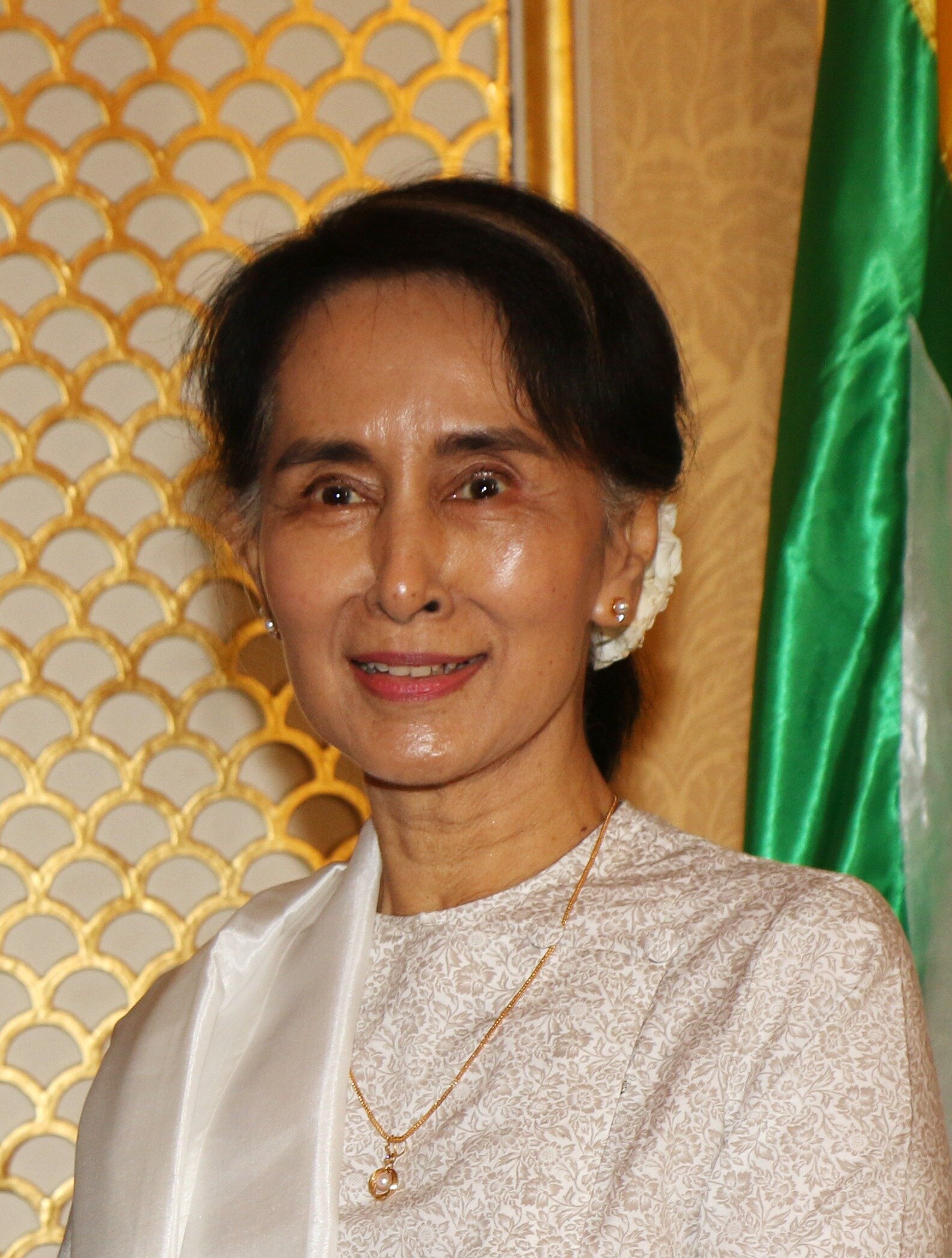Myanmar Military Seizes Power in a Coup
The military detained Aung San Suu Kyi, the leader of Myanmar since 2015, in a coup to overthrow the nation’s democratic government (Wikimedia Commons).
The Myanmar military seized power in a coup on February 1, detaining national leader Aung San Suu Kyi, other top government officials, and pro-democracy activists in the capital of Naypyidaw. This development comes as a result of heightened friction after the November parliamentary election, in which Suu Kyi’s incumbent civilian government routed the military-backed party. The military disputes the results of the election, although the election commission has denied any allegations of widespread voter fraud. Even though Myanmar’s 50-year military regime ended in 2010, the military has retained a great deal of its power. The junta that drafted Myanmar’s current constitution ensured that the military would receive a quarter of parliament seats in each election. The military also possesses veto power on any constitutional amendments and controls critical ministries, including the Ministry of Defense.
In the most recent November elections, Aung San Suu Kyi and her political party, the National League for Democracy (NLD), won soundly at the polls against the military-backed Union Solidarity and Development Party (USDP). The USDP, claiming fraud, had ordered a recount of the votes and a subsequent delay in the opening of parliament. However, when this did not happen, members of the military committed a coup d’état, placing commander-in-chief Min Aung Hlaing in charge. The military took Suu Kyi into custody early on the morning of February 1, but raids and detentions continued into Monday night. She has since been charged with illegally importing walkie-talkies. While the detained officials have been able to return to their homes, the internet and telecommunications blackout has resulted in widespread unease, with Facebook being banned until Sunday.
Aung San Suu Kyi and the NLD formed their government in 2015 when she was first elected as state counsellor, a newly-created position to circumvent her lifetime ban on becoming president. Prior to 2015, she had spent upwards of a decade in detention due to her pro-democracy activism. Originally beloved by the international community, she has fallen from grace in recent years due to Myanmar’s inhumane treatment of the Rohingya, a Muslim ethnic minority in a predominantly Buddhist state. Under Suu Kyi’s leadership, thousands of the Rohingya have been killed by the military, and many more have fled to neighboring countries. In 2019, she denied claims of the ethnic genocide of the Rohingya in front of the International Court of Justice, despite widespread circulation of condemning evidence.
The international response to this coup has been mixed. The United States, UK, EU, and Australia have condemned this coup, as has UN secretary general António Guterres. However, China recently blocked a Security Council resolution to condemn the coup, claiming this was an internal matter and that international intervention is unnecessary. Other countries in the region, such as Cambodia and Thailand, have expressed the same view. In Myanmar, public protests demanding Suu Kyi’s release have flared up. They have been met with strict police response, including bans on large public gatherings and night time curfews in some places. Police are also using water cannons, rubber bullets, and tear gas against the protestors.

